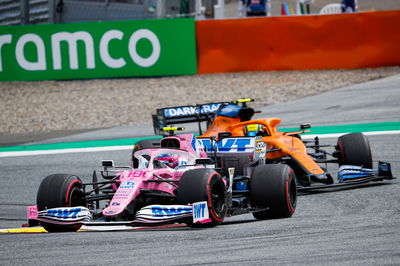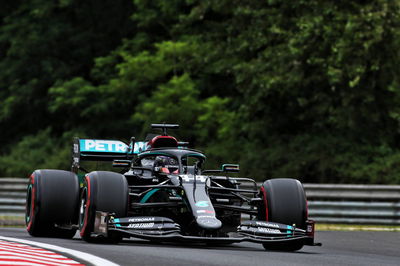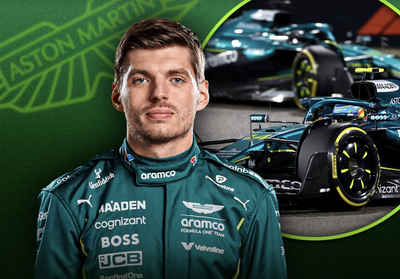McLaren worried F1 risks becoming "a copy championship”

McLaren team principal Andreas Seidl has warned that Formula 1 risks becoming a “copy championship” if the FIA deems Racing Point’s controversial 2020 car to be legal.
Renault lodged a protest against Racing Point’s dubbed ‘Pink Mercedes’ design following the Styrian Grand Prix, and Seidl stressed the investigation was a “key opportunity” to teams to gain clarification on the matter.
While Seidl said he would be “surprised” if the RP20 turns out to be illegal, the German fears the impact that allowing a “copying job” would have on F1’s future direction.
“Regarding the protest, we don’t know as a team all the details that are behind it, and to be honest with how outspoken and proud Racing Point have always been about their copying job, running a one-year-old Mercedes, I would be surprised if there has anything been done which is not according to what is possible within exploring the limits of the regulations,” he said.
“At the same time, we welcome any clarifications on this topic because it’s an important topic for us as McLaren.
“This protest is another key element of making some clarifications on the FIA and Formula 1 side of what they want Formula 1 to be in the future.
“Do they want that Formula 1 ends up a copy championship where you end up with two, three constructors or manufacturers and they simply have more cars of one manufacturer or constructor on track – which I think is the wrong way to go for Formula 1 and is not a sustainable way for us.
“What made Formula 1 so special is that Formula 1 always has been a competition between 10 constructors.
“The final car is the result of the know-how, the engineering power you have built up within your own team over the years and in the end that’s a competition you all want to be in and I think also fans want to see.
“We have everything in place in order to push that back even further again to what Formula 1 always has been.”
Seild believes components such as the suspension are among the performance-differentiating elements that should be added to the listed parts that teams are required to design themselves.
“The key performance differentiators you have in Formula 1, which is aerodynamics for sure but also bits like the structural design of the car [and] suspension elements should be done by each team individually,” he explained.
“You think about sharing suspension bits for example, it’s not just about sharing a part or sharing a design.
“A suspension part is the result of experience you’ve built up within a team over many, many years, the experience you put in from a lot of engineers being involved, not just on the design side but also on the engineering side, on the simulation side, on simulator work, on bringing back results you collect on track back into the engineering back home.
“So you cannot just take this part of the drawing in an isolated way. Each part of a Formula 1 car is part of the entire car concept and it’s something Formula 1 simply has to decide which way they want to go together with the FIA. I think our position is clear what we want to see.
“It’s important to get these clarifications now in order to also make up our mind of our future as a team. But we clearly want to be our independent team with our identity.
"I think our position is clear, what we want to see, and it's important to get these clarifications now in order to also make up our mind on how we see our future as a team.
“But we clearly want to be our own independent team with our own identity, and yeah. So looking forward to the outcome of this.”
Asked if F1 would be in danger of losing its position as a championship between 10 independent constructors’ if the Racing Point is deemed legal, Seidl replied: “There’s definitely the risk.
"I think this protest, again we don't know all the details behind it, I think it doesn't cover the entire topic that I described before, but it's one element of it.
"And obviously every clarification we get now I think simply can help chasing that direction.”












